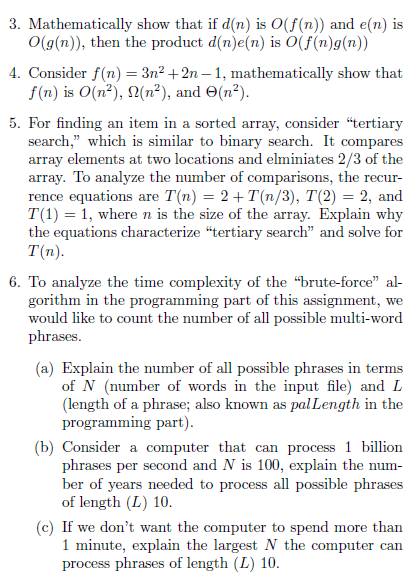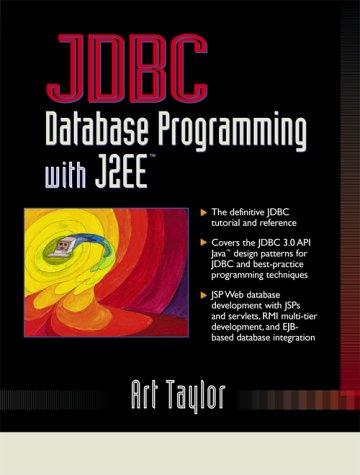Answered step by step
Verified Expert Solution
Question
1 Approved Answer
3. Mathematically show that if d(n) is O(f(n)) and e(n) is O(g(n)), then the product d(n)e(n) is O(f(n)g(n)) . Consider f(n) 3n2 +2n -1, mathematically

Step by Step Solution
There are 3 Steps involved in it
Step: 1

Get Instant Access to Expert-Tailored Solutions
See step-by-step solutions with expert insights and AI powered tools for academic success
Step: 2

Step: 3

Ace Your Homework with AI
Get the answers you need in no time with our AI-driven, step-by-step assistance
Get Started


